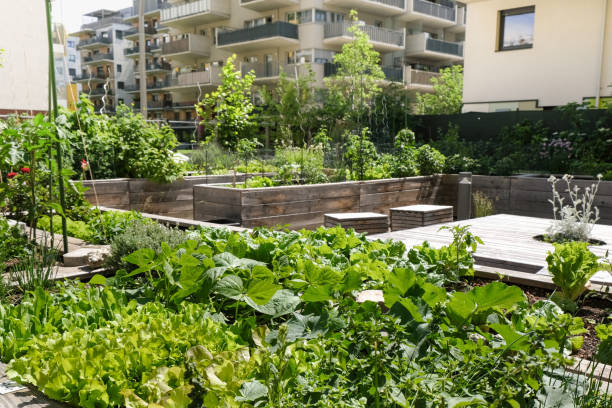Contemporary Society's Dance with Urban Farming
Societal attitudes towards food production are shifting. From the concrete jungles, a new trend is sprouting—urban farming. It's a fresh, green movement that is transforming our cities and our plates. Read below to delve into this exciting development and its implications for our society.

Urban Farming: A Historical Perspective
The concept of urban farming, though seemingly modern, has roots tracing back to ancient civilizations. From the hanging gardens of Babylon to the rooftop gardens of ancient Rome, city-dwelling humans have always sought ways to cultivate crops within urban confines. However, as industrialization swept across societies, agriculture moved out of the cities. Now, as environmental concerns and food security issues loom large, urban farming is making a comeback.
The Resurgence of Urban Agriculture
Today’s urban farming is not just a nostalgic nod to the past; it’s a progressive step towards sustainable living. As cities expand, swallowing up green spaces, urban farms are providing a much-needed touch of greenery. Rooftop gardens, community vegetable plots, and even indoor vertical farms are popping up in cities worldwide. This resurgence is fueled by a growing awareness among city dwellers of the environmental impact of their food choices and a desire for locally grown, organic produce.
The Societal Implications of Urban Farming
Urban farming is not just about fresh tomatoes and herbs. It carries profound implications for our society. For starters, it promotes food self-sufficiency, reducing reliance on long-distance supply chains. By growing food locally, cities can secure their food supply and reduce the carbon footprint of their meals.
Moreover, urban farming is fostering community engagement. Community gardens are becoming social hubs, where neighbors come together to plant, nurture, and harvest. This shared purpose is fostering a sense of community in urban areas often criticized for their impersonal nature.
The Future of Urban Farming
The future of urban farming looks promising. Technological advancements are revolutionizing urban agriculture, making it more efficient and accessible. Hydroponic systems, smart watering devices, and LED grow lights are enabling city dwellers to grow a wide variety of plants in small spaces, all year round.
Research is also highlighting the mental health benefits of urban farming. The act of nurturing plants can have therapeutic effects, providing an antidote to the high-stress urban lifestyle. As such, urban farming could be a key player in promoting mental well-being in our cities.
Conclusion
Urban farming is more than a trend; it’s a societal shift. It represents a move towards sustainability, community engagement, and mental wellness. As we navigate the complexities of the 21st century, the growth of urban farming could be a beacon of hope for a greener, healthier future.




